Benjamin Netanyahu wins again
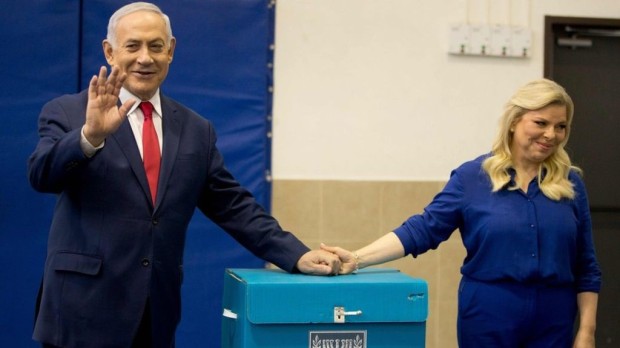
Benjamin Netanyahu re-elected prime minster of Israel. He wants to annex the West Bank, thus ending the idea of a two-state solution
Despite projections that he might finally be dislodged from power, Benjamin Netanyahu defied expectations and managed to squeeze out a victory in the Israeli election last week. He will form a coalition government with smaller parties, some of them considered extreme or even racist, and has become the longest serving Israeli prime ministers with 13 accumulated years in power, and five election victories.
Two days before the election, Netanyahu said he planned to annex parts of the West Bank, in what many critics describe as a deathblow to the two state solution. This idea, which is accepted by the great majority of the world as a way to one of humanity’s most intractable problems, involves Israel ceding the West Bank, or most of it, to the Palestinians. The problem is that over 600,000 Jewish settlers now are settled there, territory which the world community deems to have been illegally occupied since Israel seized it from Jordan in 1967. Uprooting these settlers is likely politically impossible, even if Netanyahu showed interest in seeking peace with the Palestinians, which doesn’t, anyhow, seem to be the case.
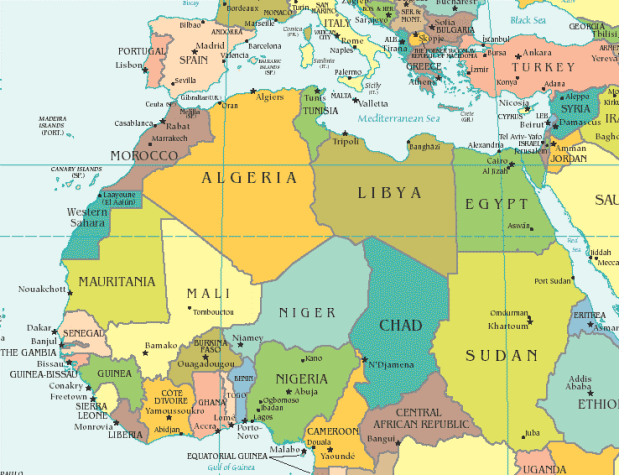
For Israel, putting two million Palestinians under its direct rule would threaten the democratic nature of Israel and the country’s stated purpose of maintaining a Jewish majority. Others warn of a kind of apartheid will emerge where the Palestinians are permanently second class citizens in a greater Israeli state.
In the past, Israel has been restrained in proclaiming such intents with the West Bank, fearing censure from its chief ally and beneficiary, the United States, which has actively supported the two state solution in the past. However, US President Donald Trump has given the green light to Netanyahu, moving the US embassy from Tel Aviv to Jerusalem, recognizing Israel’s sovereignty over the Golan Heights (which belong to Syria) as well as stopping funding for UN programs that helped Palestinians. One of Trump’s strongest bases are Evangelical Christians, fervent supporters of Israel though not necessarily Jews.
The failure to beat Bibi, as he is known, shows that running a campaign principally focused on defeating a controversial individual rather than offering ideas with popular appeal should serve as a warning to the many opponents of Donald Trump who think that simply pillorying him will result in his downfall.
The second Arab Spring
Popular revolts have been taking place in Algeria and Sudan, and in both cases leaders who had ruled these countries for decades were forced to cede power. This is seen as a triumph for “people power” although many caution that these positive outcomes do not guarantee peaceful transitions of power.
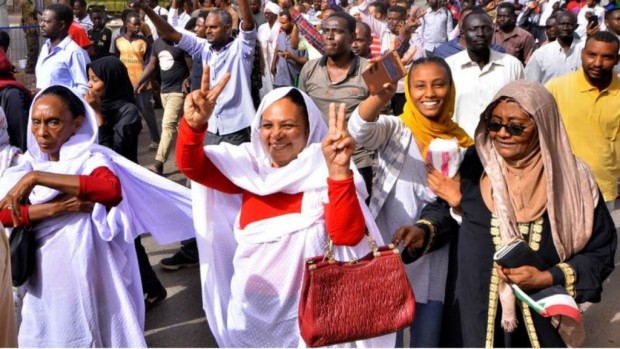
Women made up large parts of the demonstrators in Sudan
Egypt’s trajectory after relentless street protests led to the ouster of Hosni Mubarak after years in power, reflects the disappointment that comes after the initial euphoria of the triumph of popular will. A democratic election resulted in the election of an Islamist prime minister, Mohamed Morsi, who was later deposed by the military. Egypt today is perhaps less democratic than it had been with Mubarak.
Libya is another cautionary tale where after the assassination of Muammar Gadhafi, the country entered into chaos, from which it had never recovered and today is wracked by conflict and instability. Protests in Syria in 2011 resulted in the country descending into horrific carnage and a civil war that has killed hundreds of thousands of people.
Algeria, a country in North Africa with 40 million people, 70% of whom are under 30, has been experiencing street protests for the last month which resulted in the resignation of Abdelaziz Bouteflika who ruled the country with an iron fist for 20 years. The protesters are demanding political change and an end to the corruption of the entrenched elite. The professional prospects for young people are minimal and have resulted in frustration and widespread anger. The economy, despite significant revenues from oil and gas, has not been able to absorb an influx of young people into the workforce.
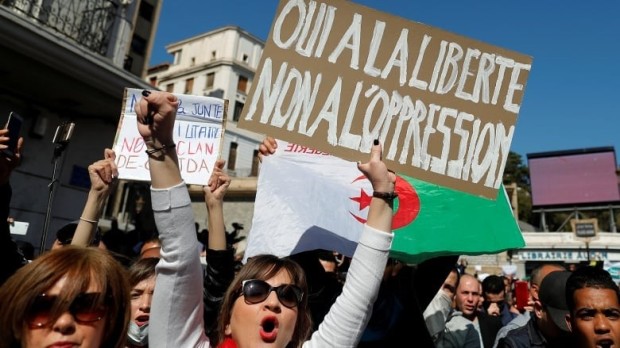
Similarly, Omar-al Bashir, the president of Sudan, was forced to resign after street protests demanded he step aside. He had ruled this nation of 42 million people, 41% of whom are under 15, since 1993. He used terror to exert control, oversaw a brutal civil war that eventually led to the secession of South Sudan in 2013, and imposed Sharia Law in the country. Interestingly, many of the protesters were women, unhappy with the subjugation inscribed within Islamic law.
In both countries, the removal from power of dictators who have ruled uncontested for decades creates a power vacuum. It is the manner in which this power vacuum is filled which will determine the future outcome for the country. Tunisia, where the Arab Spring started in 2010 with the removal of an entrenched dictator, has developed into a plucky democracy, in sharp contrast with its neighbor Libya, where civil strife continues after the death of its heinous dictator. The world should be looking closely.
Brexit Blues
Britain, once known for its pragmatism and common sense, has metamorphosed into the laughing stock of Europe, unable to solve the problem of how to leave the European Union without causing chaos.
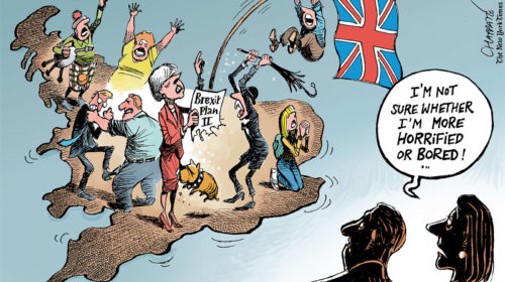
In 2016, after David Cameron then Britain’s prime minister, blithely called for a referendum about the UK remaining or not in the EU, mostly to appease the right wing of his party, Britain has been grappling with how to extricate itself from a club to which it has been a member for 45 years. The narrow victory of the leave vote has pulverized Britain’s political class and process, and exposed deep fissures in the national character and the very nature of what it means to be British.
Theresa May, who took over as prime minister after Cameron’s resignation, has been dogged in her pursuit of a deal, which has been voted down three times in the parliament and failed to deliver the result of the referendum, her professed desire. Two deadlines for the UK crashing out with no-deal have passed and at present, Britain has until October 30 to come up with a deal parliament will pass.
The issue has divided both parties, though May’s conservatives seemed to be wracked by division and May’s inability to coalesce her party around an acceptable exit strategy reflects this. Member of the so-called European Research Group, composed of Tory MPs whose sole purpose is to extricate Britain from the European Union at whatever cost, have helped to vote down May’s deal and even her cabinet is bitterly divided.
Labor, the other principal party, is also suffering from schisms, since the majority of its members would prefer to remain, but its leadership, in the form of Jeremy Corbyn, have vacillated and historically been anti-EU, seeing it as a vehicle for neo-liberal economics that is harmful to workers. Corbyn seems more interested in becoming prime minister than ensuring the UK continue being within the EU.
What is most distressing, however, is that most of the politicians are putting their own careers in front of the good of the country. Many advocate another referendum, this time where voters would choose a deal that had been agreed upon by parliament, or the status quo of Britain remaining in the EU. Others are adamantly opposed, saying the public has already voted and shown its preference in the first referendum.
The divide reflects that occurring in many industrialized countries, where working class people feel that globalization has left them behind, and is exclusively serving an often urban elite. Demagogues and populists have played on this resentment, blaming foreigners for the plight of this class and stoking nativist fears about invasions from foreigners. Certainly Brexit and the election of Trump are emblematic of this general distrust of the political and economic elite.
Meanwhile, the Brexit drama continues without resolution.